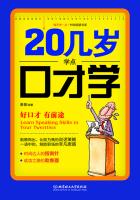It was then, sitting there upon the sand, the good old gentleman reading in his high, cracking voice, that they first learned from the bloody records in those two books who it was who had been lying inside the Cape all this time, and that it was the famous Captain Kidd. Every now and then the reverend gentleman would stop to exclaim, "Oh, the bloody wretch!" or, "Oh, the desperate, cruel villains!" and then would go on reading again a scrap here and a scrap there.
And all the while Tom Chist sat and listened, every now and then reaching out furtively and touching the heap of money still lying upon the coat.
One might be inclined to wonder why Captain Kidd had kept those bloody records. He had probably laid them away because they so incriminated many of the great people of the colony of New York that, with the books in evidence, it would have been impossible to bring the pirate to justice without dragging a dozen or more fine gentlemen into the dock along with him. If he could have kept them in his own possession they would doubtless have been a great weapon of defense to protect him from the gallows. Indeed, when Captain Kidd was finally brought to conviction and hung, he was not accused of his piracies, but of striking a mutinous seaman upon the head with a bucket and accidentally killing him.
The authorities did not dare try him for piracy. He was really hung because he was a pirate, and we know that it was the log books that Tom Chist brought to New York that did the business for him; he was accused and convicted of manslaughter for killing of his own ship carpenter with a bucket.
So Parson Jones, sitting there in the slanting light, read through these terrible records of piracy, and Tom, with the pile of gold and silver money beside him, sat and listened to him.
What a spectacle, if anyone had come upon them! But they were alone, with the vast arch of sky empty above them and the wide white stretch of sand a desert around them. The sun sank lower and lower, until there was only time to glance through the other papers in the chest.
They were nearly all goldsmiths' bills of exchange drawn in favor of certain of the most prominent merchants of New York. Parson Jones, as he read over the names, knew of nearly all the gentlemen by hearsay. Aye, here was this gentleman; he thought that name would be among 'em. What? Here is Mr. So-and-so.
Well, if all they say is true, the villain has robbed one of his own best friends. "I wonder," he said, "why the wretch should have hidden these papers so carefully away with the other treasures, for they could do him no good?" Then, answering his own question: "Like enough because these will give him a hold over the gentlemen to whom they are drawn so that he can make a good bargain for his own neck before he gives the bills back to their owners. I tell you what it is, Tom," he continued, "it is you yourself shall go to New York and bargain for the return of these papers. 'Twill be as good as another fortune to you."The majority of the bills were drawn in favor of one Richard Chillingsworth, Esquire. "And he is," said Parson Jones, "one of the richest men in the province of New York. You shall go to him with the news of what we have found.""When shall I go?" said Tom Chist.
"You shall go upon the very first boat we can catch," said the parson. He had turned, still holding the bills in his hand, and was now fingering over the pile of money that yet lay tumbled out upon the coat. "I wonder, Tom," said he, "if you could spare me a score or so of these doubloons?""You shall have fifty score, if you choose," said Tom, bursting with gratitude and with generosity in his newly found treasure.
"You are as fine a lad as ever I saw, Tom," said the parson, "and I'll thank you to the last day of my life."Tom scooped up a double handful of silver money. "Take it.
sir," he said, "and you may have as much more as you want of it."He poured it into the dish that the good man made of his hands, and the parson made a motion as though to empty it into his pocket. Then he stopped, as though a sudden doubt had occurred to him. "I don't know that 'tis fit for me to take this pirate money, after all," he said.
"But you are welcome to it," said Tom.
Still the parson hesitated. "Nay," he burst out, "I'll not take it; 'tis blood money." And as he spoke he chucked the whole double handful into the now empty chest, then arose and dusted the sand from his breeches. Then, with a great deal of bustling energy, he helped to tie the bags again and put them all back into the chest.
They reburied the chest in the place whence they had taken it, and then the parson folded the precious paper of directions, placed it carefully in his wallet, and his wallet in his pocket.
"Tom," he said, for the twentieth time, "your fortune has been made this day."And Tom Chist, as he rattled in his breeches pocket the half dozen doubloons he had kept out of his treasure, felt that what his friend had said was true.
As the two went back homeward across the level space of sand Tom Chist suddenly stopped stock-still and stood looking about him.
"'Twas just here," he said, digging his heel down into the sand, "that they killed the poor black man.""And here he lies buried for all time," said Parson Jones; and as he spoke he dug his cane down into the sand. Tom Chist shuddered.
He would not have been surprised if the ferrule of the cane had struck something soft beneath that level surface. But it did not, nor was any sign of that tragedy ever seen again. For, whether the pirates had carried away what they had done and buried it elsewhere, or whether the storm in blowing the sand had completely leveled off and hidden all sign of that tragedy where it was enacted, certain it is that it never came to sight again--at least so far as Tom Chist and the Rev. Hilary Jones ever knew.
VII
This is the story of the treasure box. All that remains now is to conclude the story of Tom Chist, and to tell of what came of him in the end.
He did not go back again to live with old Matt Abrahamson.














